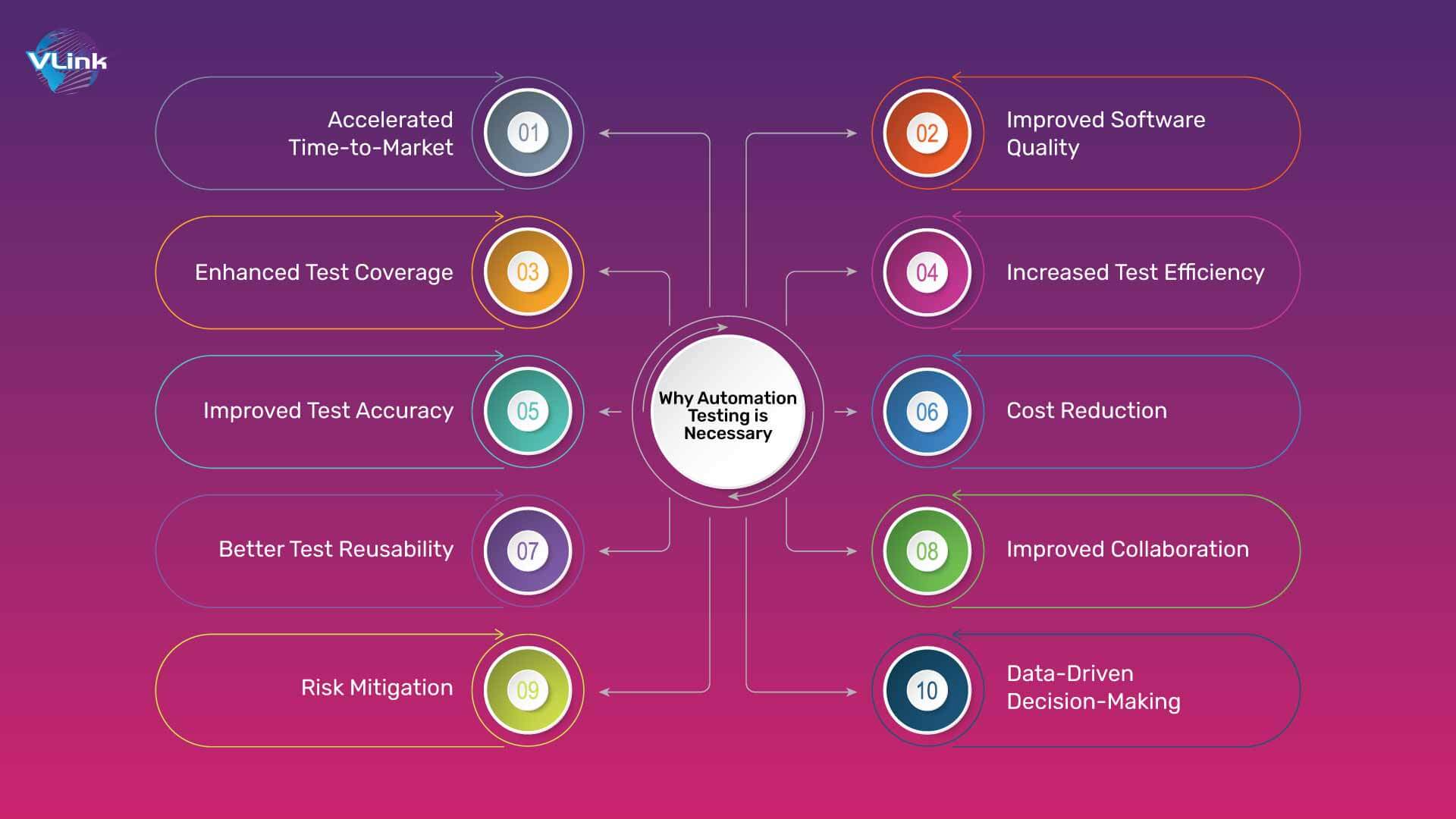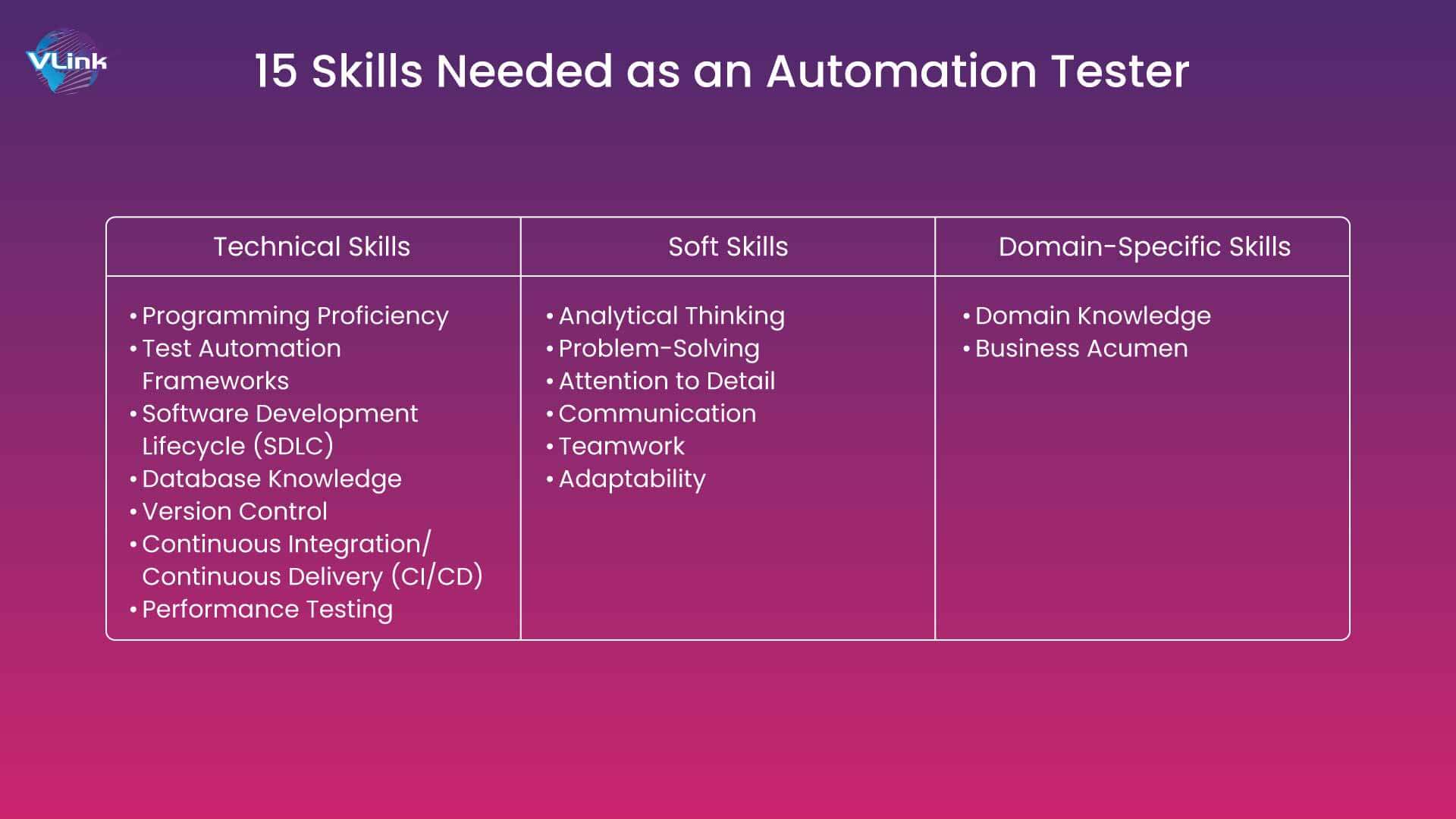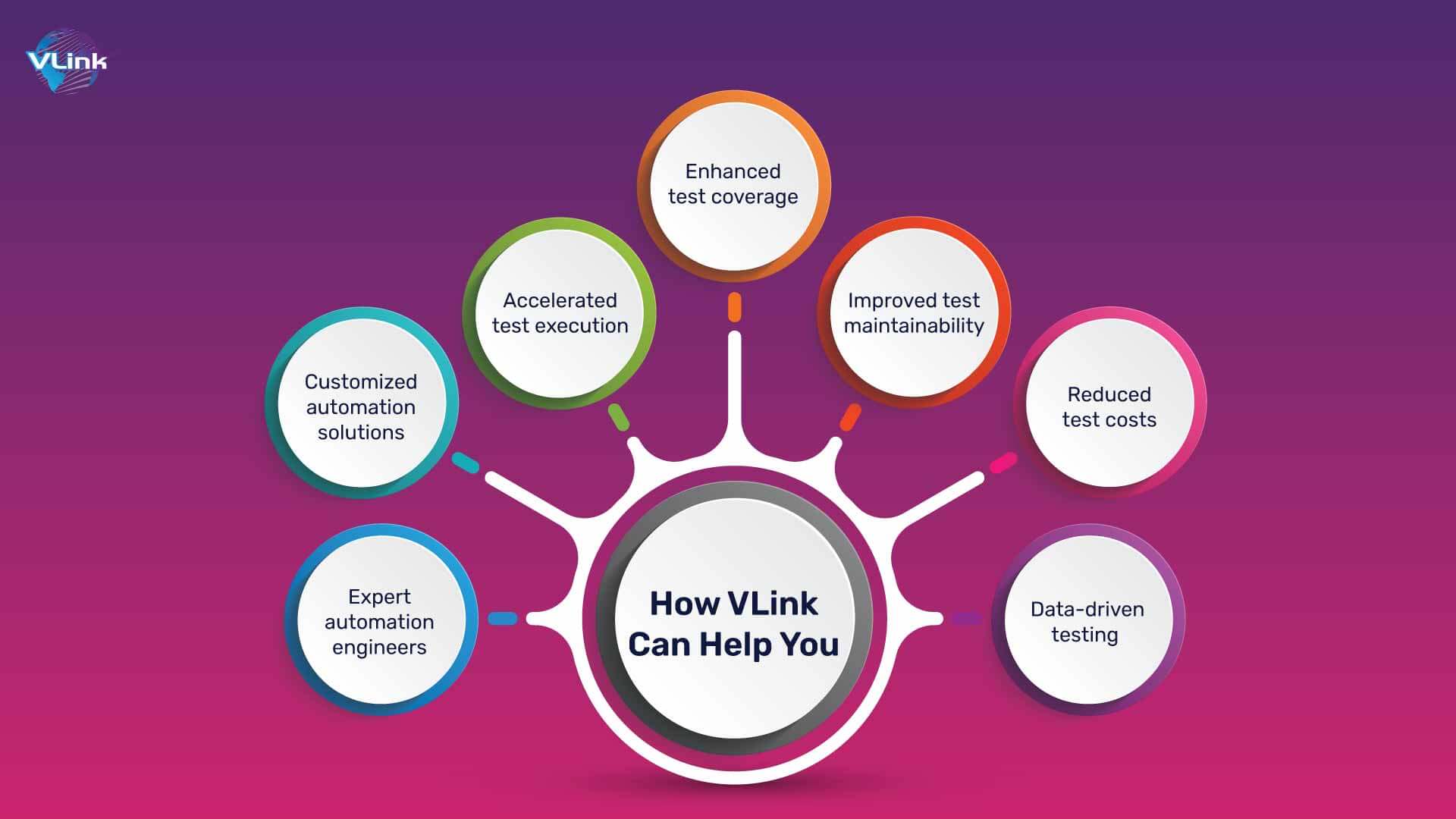Automation testing has become the cornerstone of modern software development, driving efficiency, quality, and speed to market. According to a recent study by Statista, organizations that have embraced automation testing have reported an average of only 10 percent of those surveyed reported that all of their project tests were automated worldwide. The highest share, 26 percent of respondents, reported that only some project tests were automated in 2023.

This surge in adoption is driven by factors such as the increasing complexity of software applications, the growing frequency of software releases, and the rising consumer expectations for flawless digital experiences. Crucially, Automation testing accelerates time-to-market, improves software quality, and expands test coverage while optimizing resource allocation.
In this blog, we will explore the critical role of automation testing, its key benefits and challenges, and the 15 essential skills required to become a top automation tester. But first, let’s examine why automation testing is crucial for modern software development.
Why Automation Testing is Necessary

Automation testing is no longer a mere luxury; it's a strategic imperative for businesses seeking to thrive in today's competitive landscape.
Here's why:
- Accelerated Time-to-Market: Automation enables rapid test execution, allowing for faster release cycles and quicker delivery of software products to market.
- Improved Software Quality: By executing a larger volume of test cases, automation helps identify defects early in the development process, leading to higher-quality software.
- Enhanced Test Coverage: Automation enables testers to execute a broader range of test cases, including those that are time-consuming or impractical to perform manually.
- Increased Test Efficiency: Automation eliminates repetitive manual tasks, allowing the automation engineer to boost efficiency and focus on more complex and strategic testing activities.
- Improved Test Accuracy: Automation reduces human error, ensuring consistent and reliable test results.
- Cost Reduction: By automating test execution, organizations can achieve significant cost savings in the long run.
- Better Test Reusability: Automated test scripts can be reused across different test environments and projects, saving time and effort.
- Improved Collaboration: Automation fosters better collaboration between development and testing teams by providing early feedback on code quality.
- Risk Mitigation: By identifying defects earlier in the development lifecycle, automation helps prevent costly issues in production.
- Data-Driven Decision-Making: Automation generates detailed test reports and metrics, enabling data-driven decision-making for continuous improvement.
Key Benefits of Automation Testing
| Benefit | Advantages |
| Accelerated Time-to-Market | Faster software delivery |
| Improved Software Quality | Early defect detection |
| Increased Test Coverage | Broader test execution |
| Enhanced Efficiency | Optimized resource allocation |
| Improved Accuracy | Reliable and consistent test results |
| Cost Reduction | Reduced testing expenses |
| Better Collaboration | Improved teamwork and communication |
| Reusability | Test scripts can be reused across projects |
| Scalability | Handles increased test volume with ease |
| Risk Mitigation | Reduces the risk of software failures |
Organizations need skilled professionals with unique technical expertise and soft skills to implement automation testing effectively. An automation tester is responsible for designing, developing, and executing automated test scripts to ensure software quality.
Let's delve into the specific skills required for this crucial role.
15 Skills Needed as an Automation Tester

A unique blend of technical proficiency and soft skills is essential to excel as an automation tester. Here are the 15 critical skills:
Technical Skills:
- Programming Proficiency: Mastery of languages like Python, Java, C#, or JavaScript is crucial for developing efficient and maintainable test automation scripts.
- Test Automation Frameworks: Expertise in frameworks such as Selenium, Appium, JUnit, TestNG, or Cucumber is essential for designing and executing automated tests.
- Software Development Lifecycle (SDLC): A deep understanding of SDLC phases enables effective automation integration into the development process.
- Database Knowledge: Proficiency in SQL or NoSQL databases is vital for testing data-driven applications.
- Version Control: Expertise in Git or similar tools is essential for managing test code and collaborating with the team.
- Continuous Integration/Continuous Delivery (CI/CD): Knowledge of CI/CD pipelines is crucial for integrating automation into the development workflow.
- Performance Testing: Understanding performance testing concepts and tools is beneficial for identifying performance bottlenecks.
Soft Skills:
- Analytical Thinking: The ability to break down complex problems and design effective test cases is essential.
- Problem-Solving: Strong problem-solving skills are crucial for troubleshooting test failures and finding solutions.
- Attention to Detail: Meticulousness is vital for ensuring test accuracy and reliability.
- Communication: Communication with stakeholders is essential for collaboration and understanding project requirements.
- Teamwork: The ability to collaborate with development and other testing teams is crucial for project success.
- Adaptability: The ability to adapt to changing requirements and technologies is essential in a fast-paced environment.
Domain-Specific Skills:
- Domain Knowledge: Understanding the specific industry or application domain can enhance test case design.
- Business Acumen: Knowing business objectives and how the software supports them helps prioritize test cases.
Now, let's proceed to the next section to examine a few challenges that Automation Testers May Face.
Challenges that Automation Testers May Face
While automation testing offers numerous advantages, it also presents challenges that require careful consideration and effective strategies. Let's check out some of them.
- Test Environment Setup and Maintenance: Creating and maintaining stable test environments across different platforms, browsers, and devices can be complex and time-consuming.
- Test Data Management: Generating, managing, and securing appropriate test data can be challenging, especially for complex applications.
- Test Script Maintenance: Keeping test scripts up-to-date with application changes can be laborious and error-prone.
- False Positives and Negatives: Automation tools may sometimes produce incorrect test results, wasting time and effort.
- Tool Limitations: Not all automation tools are suitable for every testing scenario, and their capabilities may be limited.
- Skill Shortage: Finding qualified automation testers with the necessary skills can be challenging for many organizations.
- Cost and Return on Investment (ROI): Implementing automation requires initial investments in tools, infrastructure, and training, and demonstrating ROI can be difficult.
- Test Automation Framework Design: Creating a robust and maintainable test automation framework requires careful planning and design.
- Integration with CI/CD Pipelines: Integrating automation into CI/CD pipelines can be complex and requires coordination with development teams.
- Over-reliance on Automation: While automation is valuable, it's essential to maintain a balance with manual testing to ensure comprehensive test coverage.
Overcoming these challenges requires a strategic approach and the right expertise. To maximize the benefits of automation testing and ensure its successful implementation, organizations often seek the support of specialized teams.
By partnering with an experienced Automation testing organization like VLink, businesses can effectively overcome these challenges. VLink team of skilled automation testers brings the expertise needed to navigate complexities, optimize test suites, and deliver robust, reliable software.
Hire Automation Testers from VLink

VLink offers a comprehensive range of automation testing services to help organizations overcome these challenges and achieve their testing goals. Our team of experienced automation experts provides tailored solutions to meet each client's unique needs.
By partnering with VLink, you can benefit from:
- Expert automation engineers
- Customized automation solutions
- Accelerated test execution
- Enhanced test coverage
- Improved test maintainability
- Reduced test costs
- Data-driven testing
By investing in automation testing and partnering with VLink, you can build a robust testing foundation that drives innovation, accelerates time-to-market, and delivers exceptional software products. Contact VLink today to hire test automation engineers and learn more about our automation testing services.
Wrap Up!
In today's fast-paced software development landscape, automation testing has emerged as a critical component for ensuring software quality, accelerating time-to-market, and gaining a competitive edge. By mastering the essential skills and addressing the challenges, automation testers can become invaluable assets to their organizations.
VLink's team of experienced automation experts is dedicated to helping businesses harness the full potential of automation testing. Our tailored solutions and proven methodologies deliver exceptional results, empowering organizations to achieve their software quality goals.
Ready to elevate your automation testing strategy? Contact us today to learn how to build a robust testing foundation that drives innovation. We will deliver exceptional software products by implementing automation testing and partnering with the right experts.









 Shivisha Patel
Shivisha Patel

















